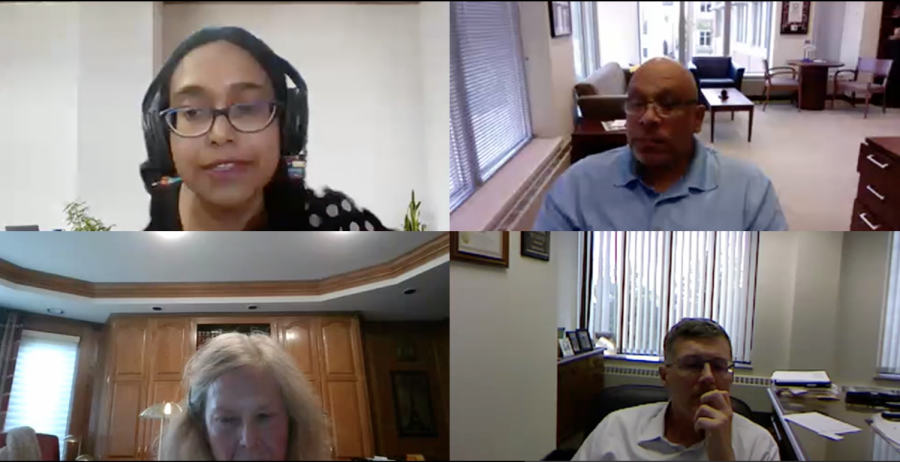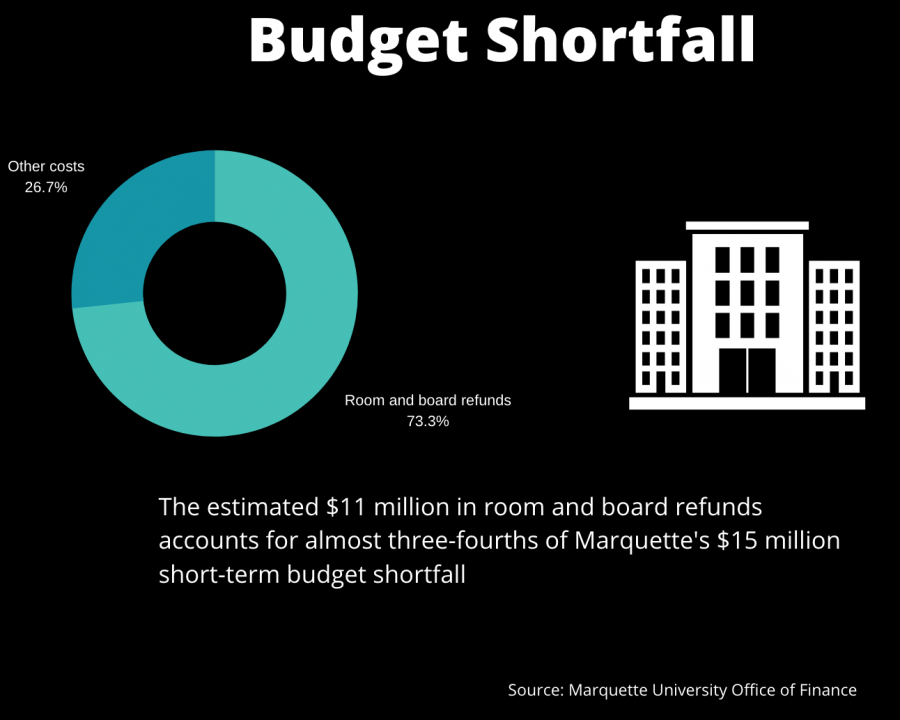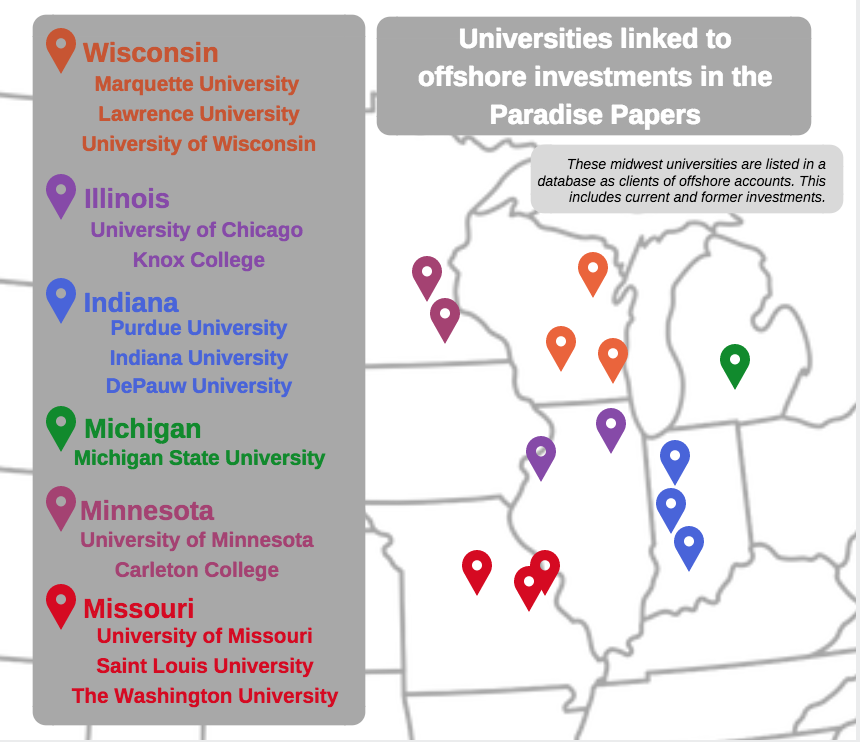Under a new endowment policy Marquette University will no longer be allowed to invest in public securities whose “primary business” is in fossil fuels. Marquette cites social responsibility as one of the reasons for the new policy.
The university has said that at this time it holds no direct public investments in fossil fuels. At the end of fiscal year 2021 Marquette’s endowment had a market value of $929.1 million.
The new policy does not prohibit private investments, which are investments outside of the public sphere, though the university said it will look to “wind down private investments in fossil fuel related strategies … ” It will also look into funds with any indirect exposure to fossil fuels.
Marquette’s endowment investment policy does have a higher permissible range for public investments than private. The fund has a maximum permissible value of 45% in public equity and 20% in private equity. The permissible range sets limits on how much of the endowment can be placed in certain investments.
Last year at this time the university had approximately 1-2% of its endowment in direct fossil fuels, with $5 million of direct investment.
“Over time, we have shifted our holdings to cleaner energy investments based on market trends and opportunities, while also upholding our fiduciary responsibility to our endowment,” Sean Gissal, chief investment officer, said in a statement.
The university also said it will “continue to engage in open dialogue and work closely with student leaders, including Marquette University Student Government….” However, Fossil Free Marquette co-founder and junior in the College of Arts & Sciences, Maddie Kuehn, said there hasn’t been much open dialogue with university leaders.
“We really want there to be more transparency between the administration and the board (of trustees) and students. A lot of this information is really inaccessible … so just to have an opportunity for students to ask questions to the administration and the Board of Trustees, the investment committee just to explain what this means and what this actually is,” Kuehn said.
Marquette University Student Government was informed of the updated endowment policy prior to the public announcement last Thursday. Fossil Free Marquette was not.
“I’m definitely surprised, we have been working on this for almost three years at this point and… we’ve gotten a lot of pushback from the university on it so to hear about this I was really excited but also surprised at the same time,” Kuehn said.
Fossil Free Marquette has argued in the past that the university’s involvement in fossil fuel investment is not compatible with its Jesuit values. They’ve held protests and presented to both student and university leaders.
“By prohibiting direct investments in fossil fuels and following best practices in responsible investment, Marquette is heeding Pope Francis’ call to ‘reject a magical conception of the market, which would suggest that problems can be solved simply by an increase in the profits of companies or individuals,'” University President Michael Lovell said in a statement.
A student referendum was also held last year in which 87% of students who voted said they support the move to divest. The referendum was used to gauge student interest as all decisions concerning the endowment must be made by President Lovell and the Board of Trustees.
Fossil Free Marquette also presented a letter to the Board of Trustees back in October 2021 calling for the university to take action and divest from fossil fuels.
“There was nothing to indicate that they read it or received it. I’m curious to know if that letter sparked anything. From my understanding divestment was not on their radar at all and to see this announcement really shocked me when I first read it,” Kuehn said.
Marquette’s announcement comes amid a time where universities across the country are making the move to divest after pressure from their students and the general public about concerns surrounding climate change. Universities such as Harvard, Creighton and Georgetown have committed to some form of fossil fuel divestment within the past three years.
“I think this is a great step, not only for the social aspects of what it brings, but also the well being of the endowment as a whole. I think future terms this will be overall very good,” Deal said.
This story was written by Megan Woolard. She can be reached at megan.woolard@marquette.edu and Twitter @MeganWoolard4












